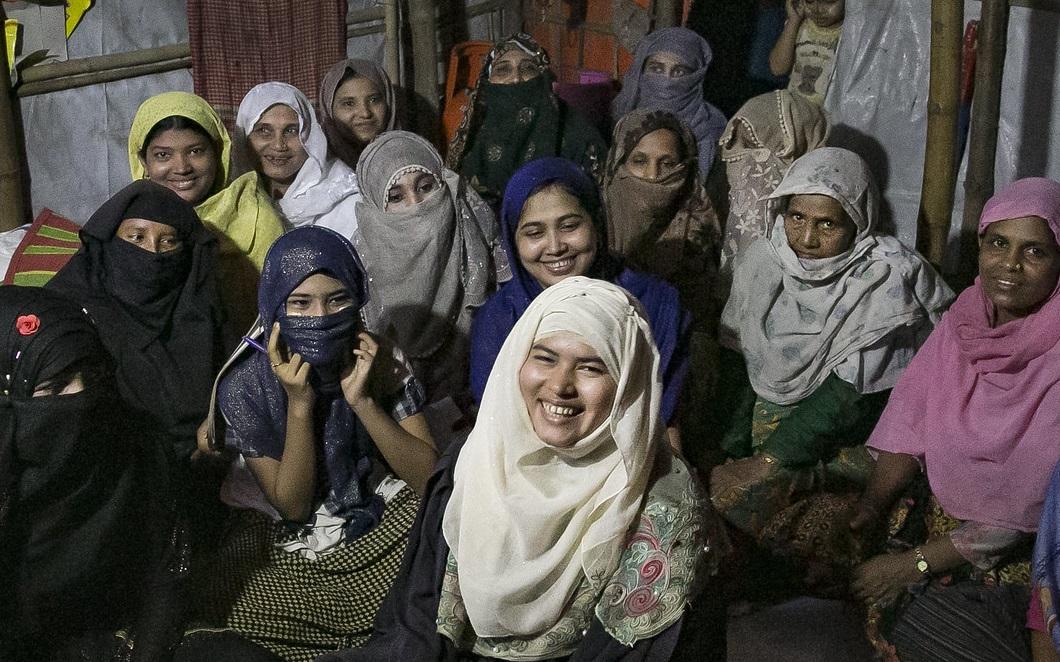Australia needs to walk the talk on women, peace and security
Posted By Louise Allen on February 19, 2020 @ 06:01

In October 2000, the UN Security Council unanimously adopted resolution 1325 [1], which formally established the women, peace and security (WPS) agenda. The agenda has become the central framework through which to advocate for women’s participation across all peace and security decision-making processes, to promote the rights of women and girls in conflict and crisis settings, and to press for the integration of gender perspectives within conflict prevention, conflict resolution and post-conflict rebuilding efforts and throughout disaster and crisis responses. The agenda, when implemented holistically, can also complement states’ national security efforts and strategies aimed at promoting regional stability.
In Australia, the WPS agenda enjoys bipartisan support, and successive Australian governments and civil society organisations have been actively engaged in supporting it over the past two decades. In fact, Australia has a positive story to tell, particularly about its integration of the agenda across the Australian Defence Force, in international operations of the Australian Federal Police, and in its aid program. There are, however, significant inconsistencies and resourcing gaps in how it approaches the implementation of its commitments on WPS.
This is particularly important considering the correlation between gender inequality and a society’s propensity for civil or interstate war, which is now well established. There’s over two decades’ worth of peer-reviewed research that provides evidence that gender equality and the status of women are together the single most reliable indicator for conflict prevention.
In addition, the UN is increasing its warnings [2] that sudden and extreme restrictions on women’s rights are among the earliest signs of the spread of violent extremism. For Australia and other countries committed to conflict prevention and sustainable development, promoting gender equality and women’s rights should be front and centre in their domestic and foreign policies.
Australia has developed a number of positive policy commitments and documents in the past several years, which points to a maturing in how it considers the WPS agenda and the promotion of gender equality. For instance, the government’s 2017 foreign policy white paper [3] recognises that societies that protect human rights and gender equality are more likely to be productive and stable. It notes that gender inequality undermines global prosperity, stability and security and contributes to and often exacerbates a range of challenges, including poverty, weak governance, conflict and violent extremism.
The Department of Foreign Affairs and Trade’s gender equality strategy [4]also commits Australia to be a consistent advocate, including in bilateral dialogue with all governments and agencies. Australia’s second WPS national action plan, to be released shortly, is expected to outline the government’s updated multi-year strategy to implement the agenda across the ADF, DFAT, the AFP and other agencies.
However, research [5] published in 2016 concluded that, while Australia rhetorically supported a broad understanding of global security as it is affected by gender relations and women’s insecurity, it has yet to put that into practice. A new research report released by ASPI, Australia’s implementation of women, peace and security: Promoting regional security [6], demonstrates that this remains the case.
The WPS agenda is still not a central tenet of Australia’s national security, foreign affairs and defence policies. It isn’t systematically featured in high-level bilateral engagements and it isn’t always incorporated into new security policies, including those relating to countering violent extremism and countering terrorism. The aim isn’t to have formulaic WPS references inserted into all high-level statements but for Australia to emphasise the importance of applying gender considerations to its security and foreign policy agendas by highlighting context-specific examples showing why it matters. High-level statements by ministers and senior government officials are key opportunities to promote Australia’s global priorities and demonstrate to other countries what it considers to be important.
Australia would also benefit from strengthened gender considerations when responding to unfolding crises in our region and further afield. For example, official records and statements don’t show any sign that a high-level commitment to gender equality informed Australia’s responses to either the human rights crisis in the Philippines or the plight of the Rohingya in Myanmar.
Ahead of the 20th anniversary of resolution 1325, the Australian government has an opportunity to strengthen its support for the WPS agenda and further operationalise its commitments across its foreign affairs and domestic policies. It can do this by prioritising the agenda at meetings such as the Shangri-La Dialogue and at forums like the UN; systematically integrating gender perspectives and analysis into high-level foreign policies and in-country assessments; being more responsive to attacks on women defenders of human rights; increasing its political and financial support of local women’s organisations both in Australia and across the Indo-Pacific; and better connecting the WPS agenda with domestic issues, including immigration, countering violent extremism and Indigenous affairs.
Failing to consider or prioritise the WPS agenda and the promotion of gender equality undermines Australia’s efforts to prevent conflict and increase stability in the Indo-Pacific region and around the world.
Article printed from The Strategist: https://aspistrategist.ru
URL to article: /australia-needs-to-walk-the-talk-on-women-peace-and-security/
URLs in this post:
[1] resolution 1325: https://undocs.org/S/RES/1325(2000)
[2] UN is increasing its warnings: https://www.un.org/sg/en/content/sg/statement/2019-03-01/secretary-generals-remarks-group-of-friends-preventing-violent-extremism-prepared-for-delivery
[3] 2017 foreign policy white paper: https://www.fpwhitepaper.gov.au/
[4] gender equality strategy : https://dfat.gov.au/about-us/publications/Pages/gender-equality-and-womens-empowerment-strategy.aspx
[5] research: https://journals.sagepub.com/doi/10.1177/0192512116629821
[6] Australia’s implementation of women, peace and security: Promoting regional security: https://www.aspistrategist.ru/report/australias-implementation-women-peace-and-security-promoting-regional-security
Click here to print.